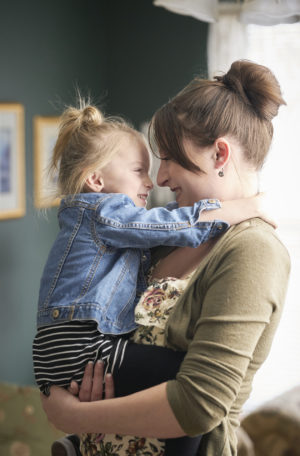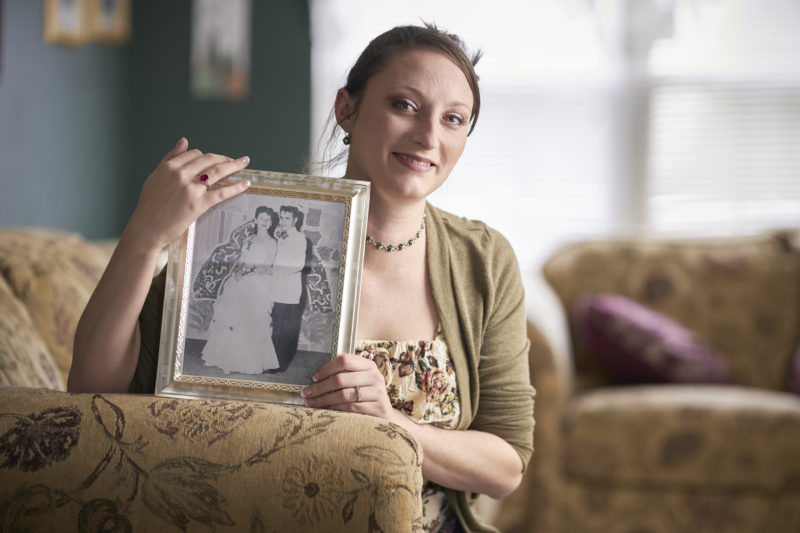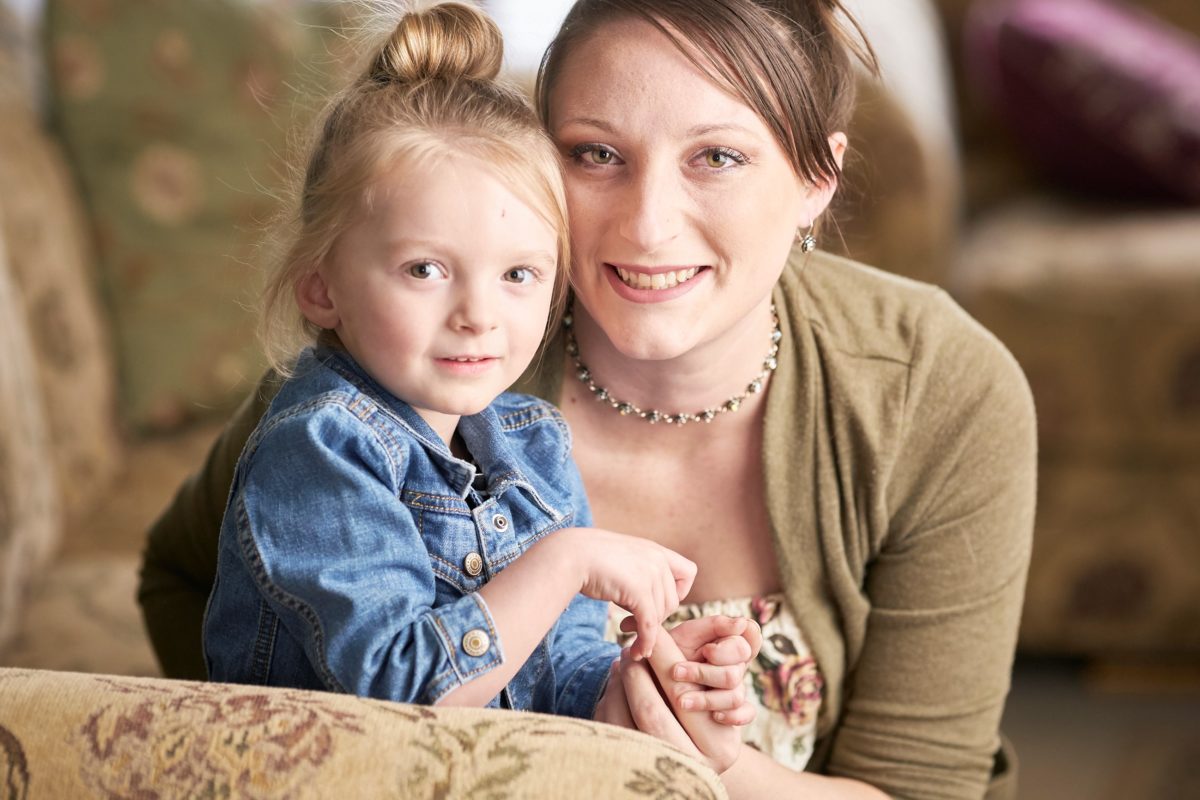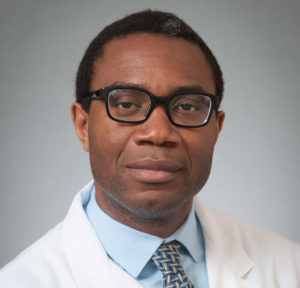Three years ago, Carli Rembold felt terribly ill. Soon after she arrived at the Emergency Department at Christiana Hospital, she learned the reason for her abdominal pains.
She was pregnant and in labor.
“The first thing out of my mouth was that I was an IV-heroin user and I need help,” she recalled.
“I knew that if I left the hospital without any type of support I would relapse and start using again.”
Although the news that she was about to become a mother came as a complete shock, Rembold said, her maternal instinct was immediate and powerful.
“She was earnest in her desire to have a better life for her and her baby,” said Terry Horton, M.D., chief of Addiction Medicine at ChristianaCare.

Ready access to care
Dr. Horton and the team at Project Engage began working with Rembold while she was still in the hospital recovering from a C-section. Project Engage is a nationally recognized program that reaches patients at the bedside with peer counseling and other recovery help. Her team stabilized her withdrawal symptoms with medication and ensured a seamless transition to treatment after she went home, linking her with behavioral health and social services in Project Recovery, ChristianaCare’s outpatient addiction program.
“I had access to a psychiatrist, a therapist and drug testing, all within the same office, which was amazing,” she recalled. “If I was having a bad day, they made time for me to come in and talk.”
Jennifer Bivens, BS, CADC, the team social worker, coordinated Rembold’s interaction with the state Department of Health and Human Services.
“I was not allowed to be home alone with my daughter unless I had six months of clean urine tests,” she said. “The team at Project Recovery not only saved my life, they allowed me to keep my daughter.”
Bivens noted that successful addiction treatment is a multidisciplinary pursuit.
“We are not a traditional doctor’s office,” she said. “A lot of the issues we help people with aren’t directly related to their treatment, such as child care, transportation, housing and how they are going to feed themselves.”
Darkness beneath a sunny exterior
Growing up in Middletown, Delaware, Rembold was a good student — a gymnast and cheerleader who played basketball and baseball. But beneath her sunny exterior, clouds of darkness loomed. She began drinking at 12; marijuana soon followed. In high school, she experimented with cocaine and other drugs; by 17, she was addicted to prescription painkillers.
When she was 19, she tried to buy opioids from her dealer.
“He said he was out of the drug I wanted. But he could get me heroin,” she said.
Rembold said she resisted, but each time she asked for opioids, the dealer would steer her toward heroin.
“So, I started using, snorting, then IV,” she said.
Heroin provided her with the feeling of peace that had eluded her for most of her young life. But the feeling soon faded.
“It feels like a blanket goes over you and you are in the happiest place in the world,” she said. “But it soon got to the point where I had to shoot up to feel normal.”
Although she didn’t know it at the time, Rembold had two risk factors for addiction. Like 40% of people with addiction issues, she also suffered from a mental illness. And her biological mother suffered from a substance use disorder.
“There’s a prominent genetic vulnerability to addiction, with an added risk for people with a mental illness,” Dr. Horton said. “But just because you have a genetic component or a behavioral health issue doesn’t mean you are doomed.”
‘A better way to live’
With her team at Project Recovery at her side, Rembold immersed herself in reclaiming her life. She saw a picture of her family on Facebook — “and realized I wasn’t in it” — and worked hard to regain their trust.
Today, her daughter, Leah, is a healthy 3-year-old. Rembold, her fiancé, Mark LeBeau, and their daughter live with Carli’s family while they look for their own place. “Mark has seen me at my complete worst and, incredibly has supported me throughout this whole thing,” she said. “I don’t know how I would have survived without him.”

Recently, Rembold’s grandmother gave her a special gift, a piece of heirloom jewelry “which I never would have gotten otherwise because I would have sold it for drugs,” she said.
Today, she is centered on her recovery. She looks forward to each day, starting with fixing breakfast for her daughter.
“It’s way better than getting up and plotting how I am going to get money to buy heroin,” she said. “There’s a better way to live. You don’t have to be sad, upset and hurting all the time.”
Dr. Horton said Rembold’s story shows that a caring, accessible system of support can change lives.
“Working on her recovery with our team, she has matured into a remarkable young woman,” he said.
At 28, Rembold is flourishing and looking forward to an even brighter future.
“I thought I would never have fun or be happy again because I couldn’t get high anymore, but that wasn’t true,” she said. “I always have fun. I am always happy.”
If you need help recovering from substance use, projectrecovery@christianacare.org or call 302-320-9650.



